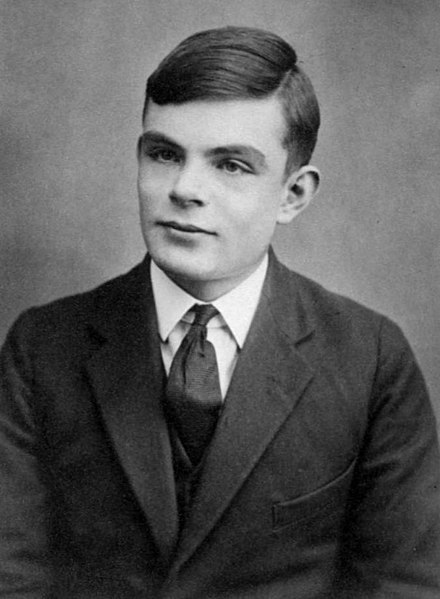
Alan Turing, a mathematician, cryptanalyst and computer scientist. Turing is also best-known for deciphering the German Enigma's code during the Second World War, and
for being considered as the father of computer science and artificial intelligence.
 |
Allan Turing at age 16 |
Alan Turing was born on 23 June 1912 and raised in southern England. His early life was spent with his brother, living with the Ward family near Hastings. He was
first educated in Hazelhurst Preparatory School in Frant, Sussex, then Sherborne School in Sherborne, Dorset. After that, he won an Open Scholarship in Mathematics
to King's College, matriculated in 1931 and graduated with distinction in 1934.
When the Second World War broke out, Turing joined the Government Code and Cypher School, which is the Britain's codebreaking centre. He was part of the team(Hut 8), which
was responsible for German naval cryptanalysis, deciphering the Enigma machine, cracking coded messages from the Axis powers, provided advantages for the Allies to defeat
the Axis powers and eventually lead the Allies to the victory of the Battle of the Atlantic. He was awarded an Officer of the Order of the British Empire(OBE) in 1946 for
his work during the war.
After the war, Turing worked at the National Physical Laboratory and designed the Automatic Computing Engine and then at Computing Machine Laboratory, at the University of
Manchester, on the development of the computer from his first idea in the early 30s for a "Turing machine". He was also elected a Fellow of the Royal Society(FRS) in 1951.
However, Turing was prosecuted in 1952 for homosexual acts and as an alternative to prison, he accpeted hormone treatment with diethylstilbestrol. After two years, he was
accidentally poisoned by cyanide, died on 7 June 1954 at the age of 41, 16 days before his birthday.